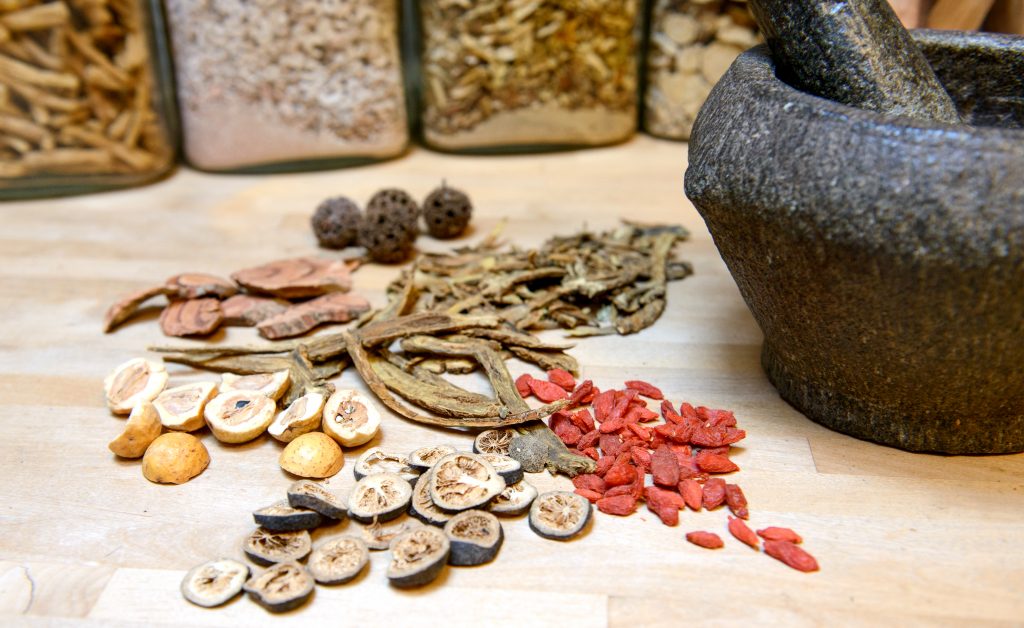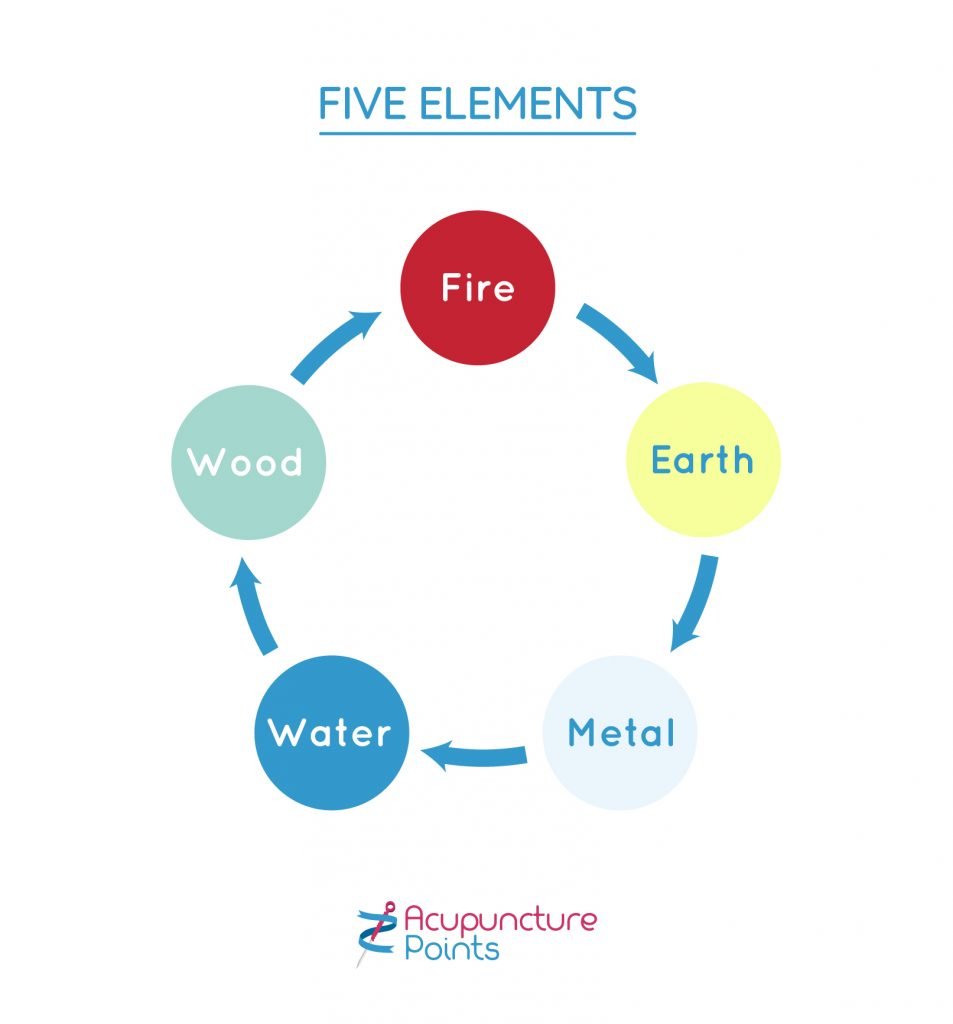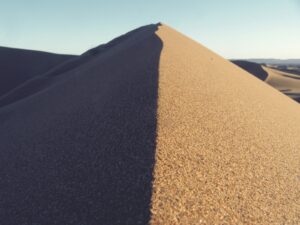Subscribe to the Newsletter
If you are interested in understanding how Traditional Chinese Medicine can improve your life sign up to my newsletter for the latest updates.

Key Learning Points
For chronic fatigue syndrome (CFS) acupuncture theory provides answers. Chinese medicine approaches CFS in a completely different way to how Western medicine explains the chronic tiredness.
By the way, CFS and ME (myalgic encephalomyelitis) are treated much the same way when diagnosing them in Chinese medicine.

People acquire chronic fatigue syndrome in a number of ways, but one of them recurs frequently in my experience.
Following a vaccination as a baby there is no reaction at all, or either a very weak or a very strong reaction – but not a mild reaction.
You want a mild reaction! That shows you that the baby’s immune system was functioning robustly. If the reaction is very mild or absent, then the pathogen injected hasn’t been properly dealt with and will hang around, uncooked as it were for years, causing problems into the indefinite future.
However, too strong a reaction, though sometimes better than nothing, may exhaust the baby’s strength, leading to further opportunistic infections, which weaken the baby still more.
A few years pass and next we meet a child who gets ongoing sinus or phlegm problems, often in the ears.
Sometimes this leads to antibiotics and sometimes to insertion of a grommet, a small tube that helps reduce the pressure from accumulation of mucus and pus in the ear.
Subsequently there may be frequent infections, keeping him or her off school.
In the teens, he or she gets glandular fever, or some other kind of recurring illness. Glandular fever, for example, is very debilitating and leads to more periods off school or away from friends.
Frequent colds or other infections may indicate lowered immunity. In women, thrush may be a problem. Antibiotics will often be used.
Chronic fatigue syndrome acupuncture theory has an explanation for this: in fact several. Read more about them under Remaining Pathogenic Factor, Latent Heat and Suppression.
Then sometime in the twenties or thirties, after what may or may not be a mild infection, such as a cold or something similar, or a digestive upset, the individual doesn’t recover his or her former level of energy. Sleep is no longer refreshing, exercise is exhausting, the mood is low and anxiety and self-blame begin.
This often happens when the individual is pushing hard up the career path, trying very hard to make friends, win influence and position, exert power.
Even now some doctors belittle chronic fatigue syndrome.
Many attribute it to a form of depression, supporting their view with evidence that anti-depressants often help.
Only recently has a set of symptoms been agreed that together in whole or in part constitute chronic fatigue syndrome.
The problem is that chronic fatigue syndrome hasn’t fitted easily into any known disease pattern. Tiredness and low spirits accompany many other diseases but haven’t been seen as diseases in their own right.
Failing proof of disease in terms of blood disease or infection etc, the last refuge of ‘don’t know’ is that it’s a mental problem.
Chronic fatigue syndrome acupuncture theory, which is really part of traditional Chinese medical theory, does have suggestions.
Take the syndrome known in Chinese medicine as ‘Damp’.
Typically, Damp manifests in lethargy and heaviness, possibly swelling. The swelling may be visible anywhere or in only one or two areas. It can appear as oedema and puffiness round joints, swollen glands, or just on the tongue.
There is stiffness, usually better for prolonged movement, but recurring after rest.
There may be a weak digestion or loose stools, and urine may be less than expected, and transparent; no colour.
There is usually a lack of thirst though sometimes the mouth feels dry, but without the desire to drink much. Usually it feels a little better for warmth, such as a warm shower or bath, and warm weather – but probably not very hot weather.
Damp has an effect on the brain too, making it harder to think, more easily confused, slower. This lowers your spirits.

Damp arises, in Chinese medicine, either because of what is called an external invasion of damp, or because of what is called weak Spleen qi. Weak Spleen qi may itself be due to other factors.
An invasion from external Damp can feel very like CFS and in susceptible people could theoretically cause it.
But more common is the internal build-up of causes leading to weak Spleen qi. The main predisposing internal factors are worry or fretting, poor food choices and harmful eating patterns. Spleen qi, together with Stomach qi, generate from food the energy and nourishment your body needs for a healthy life.

Spleen qi does more than this: it clears out the garbage, and transports both garbage and new blood to their proper destinations. It’s like a universal factotum: clears out the mess and refurbishes the body, builds muscles and healthy flesh.
In particular, it clears Damp and creates energy.
Chronic fatigue syndrome sufferers have little energy, and they have plenty of heaviness. So that again involves Spleen qi.
That isn’t all, unfortunately. Because of frequent previous infections, chronic fatigue syndrome sufferers may have a form of residual heat, like a fever that was never properly resolved. It hangs around, quiescent, weakening you when you’re already down. If present, this shows up on the tongue which is redder (from the heat) than normal in the middle and rear, and is swollen (from damp).
This quiescent fever arises in chronic fatigue syndrome acupuncture theory because during earlier infections, antibiotics stopped the fevers from running their full course.
Even that isn’t all. Because of the ongoing nature of the pattern of disease (Damp and Heat accumulating over the years, starting with mucus as a child, glandular fever in the teens, frequent use of antibiotics, compounded by worry and haste later on) the body’s source of ‘fire in the belly’ runs down.
This Fire in the belly, (its technical name in chronic fatigue syndrome acupuncture theory is “Kidney energy”) as it weakens leads to an unstable circulation, alternately too hot or too cold, sweating without obvious reason, backache, weak knees, poor sleep, lowered libido, poor memory.
Eventually it comes down to a deficiency of either Yin or Yang (though it can be both).
If the health history included many fevers over the years, it will probably be the Yin deficient pattern that prevails. That means that the patient, for he or she is certainly now a patient, tends to feel slightly warm more easily than slightly cold, tends to sweat in the night when asleep, is restless both day and night, and, not surprisingly, is anxious about the future.

The deficiency of Yin together with the residual fever make for the worst of all worlds: always weak and slightly feverish, no infection that a doctor can recognise, low spirits, lethargy, and hopelessness as a career slips away.
Also, often, signs of mould as the body is unable to clear the damp, problems such as Candida.
Sometimes, in a slightly different combination of factors, there will be less Yin deficiency but the same depression, or there could be Yang deficiency. Yang deficiency makes the patient even less bouncy than the Yin deficient patient, so more inclined to depression.
I suspect that when a patient has depression of the Yang deficient kind, with – possibly after years of resting and family support – less of the signs of Spleen qi deficiency, he or she may respond to anti-depressants. But I doubt if anti-depressants would work on a syndrome of very weak Spleen qi, strong signs of damp and Kidney Yin deficiency.
Chronic fatigue syndrome acupuncture theory provides:
We’ve talked about understanding it from the point of view of chronic fatigue syndrome acupuncture theory, together with common predisposing factors.

Please remember that we are not treating chronic fatigue syndrome! Nor are we diagnosing chronic fatigue syndrome!
What we are doing is treating syndromes recognised in Chinese medicine over several thousand years for which someone comes to us for treatment. If the patient responds to those treatments, we shall be delighted.
Treatments would be designed for example to:
There are acupuncture points and combinations of points, to treat all these different syndromes.
Also, from the point of view of what is called channel theory (acupuncture is based on channels or meridians), there will be a blockage or obstruction in the way of freely-flowing Qi. If emotions have caused this, it will be Qi stagnation – another syndrome – to consider.
There are many ways to deal with this but you need to know a bit about the underlying theory of acupuncture.
When Qi begins to flow smoothly and freely again, the blockages get cleared away and the syndrome improves.

The order of treatment is important. It would be damaging to stimulate qi too much if Damp is still a major factor for a chronic fatigue syndrome acupuncture patient.
Because it might make damp worse.
An analogy would be a flooded plain around a river that has burst its bank. The river appears to be running very slowly (Spleen qi is deficient).
What advantage would there be in forcing in more water (ie increasing qi) when, because of flooding, the system is doing its best already? Increasing the inflow of water simply increases the flooding.
The problem is that the water isn’t draining away fast enough (causing ‘Damp’). That is what treatment to clear Damp does: it clears away the flood-water faster.
Only then would you look to improve water flow into the area.
So the order of treatment is vital.
First clear Damp from a chronic fatigue syndrome acupuncture patient then stimulate qi. If Damp really is the major factor, clearing it alone might well transform the chronic fatigue syndrome acupuncture patient’s life and outlook. However, clearing damp can take time and a number of treatments.
There is another consideration, however. As already mentioned, CFS/Myalgic Encephalomyelitis often occurs against the background of what is called a remaining pathogenic factor.
This remaining pathogenic factor must be cleared before the chronic fatigue syndrome-like symptoms will go for good. Clearing this nearly always requires a fever, with sensation of heat, and perspiration from the heat, possibly with malaise, to clear it.
If these symptoms occur during the weeks under treatment, they should not be suppressed! They are your best opportunity to get rid of your chronic fatigue.
If herbs are used to help you heat up and sweat, to clear a remaining pathogenic factor, they are often different from those for damp.

In a weak chronic fatigue syndrome acupuncture patient, a little treatment, repeated frequently, is best. If the patient can come only once a week or less, progress may be slow.
In China, the normal pattern of treatments is daily, five days a week, for several weeks, then reassessment. I doubt if that is necessary in the West: results often follow even if treatment is twice a week.
In a stronger chronic fatigue syndrome acupuncture patient (someone who has had the syndrome of damp, weak Spleen qi etc for a shorter period, or is constitutionally stronger) more powerful treatment can be given, and it may not be necessary to have treatment so often.
As the chronic fatigue syndrome acupuncture patient recovers, extend the period between treatments.
However, if the chronic fatigue syndrome acupuncture patient catches another infection, to recover lost ground you will have to treat more frequently again.
1/ Avoid foods that might weaken Spleen qi or increase Damp:
2/ Introduce herbs that help Spleen qi: a little ginger root chopped up and added to dishes during cooking helps Spleen qi.
Good Nutrition is important and Supplements may help.
Other beneficial herbs if taken warm include fennel, cinnamon, turmeric, pepper, cardamom, mustard, horse radish. Each in its own way benefits Spleen qi or Kidney qi. (But too many such herbs can make you sweat and may also increase your bowel movement frequency. These can be tiring: it’s a balancing act.)

Of course, Chinese medicine has probably 3000 years of experience with Chinese herbal formulae!
A little red wine added to stews or soups has a similar though less stimulating effect on Spleen qi.
Chewing well is vital. Take your time over it. Chew each mouthful 20 or 30 times before swallowing it. It’s boring and it’s slow, but it makes food much easier to digest. Also the exercise is good!
(Good chewing muscles are said to lead to a good sex life. You only get good chewing muscles by good chewing. So chew well!)
And eat in a relaxed atmosphere: no rush, no haste!
Treat your body like a baby: little and often and plenty of sleep.

Stay in Touch!
No spam, only notifications about new articles and updates.

Book a Video consultation if you want to know more about your symptoms
For some chronic fatigue syndrome acupuncture patients, exercise is a distant memory and a hopeless pursuit. Still, as you improve, you need to start moving. Even walking across a room may be too much at first, but a programme of gentle encouragement and support must be given.
Lying still is said in Chinese medicine to weaken the Spleen: you should get used to moving. Walk around a little every day, increasing the time and distance as you get better.
 Photo by Arek Adeoye[/caption]
Photo by Arek Adeoye[/caption]
Take a small amount of exercise regularly, not a lot occasionally. The latter dissipates energy, the former stimulates it.
The weather plays its part. Dry and warm weather is best for people with damp syndrome: even dry and cold is OK. Not so good is damp and cold together. In this case, wrap up well and go outside for short spells only, returning to a warm room or quick warm shower or bath.
Although a long soak in a warm bath is a pleasure, for someone with damp, a weak Spleen and weak Kidney energy, a long soak can be counter-productive. The water itself can worsen damp, and the heat may exhaust the Kidney energy.
So a short, warm bath or shower is better.
Eventually, as you grow stronger, think about the benefits of cold showers. You may be surprised!
Ideally, get treatment as a chronic fatigue syndrome acupuncture patient as soon as ‘they’ recognise your condition. (Better still would have been to go for acupuncture regularly, in which case you might never have got ill in the first place.)
If your employment contract permits time off sick with pay you can afford treatment. Doing something will keep your spirits up.
If, however, you are long past receiving sick-pay, your career will probably already be on hold.
Don’t fret about the job: it’s gone. Start thinking about getting better, and about what you might like to do when you can.
Perhaps this enforced period of rest is what you needed to realise a more rewarding life in a different field.

This waiting time is equivalent to the Water phase in the 5 Elements acupuncture system. Use it to dream and identify resources. It need not be a waste.
If you are very weak, you will have time to think about it and make plans.
Chronic fatigue syndrome doesn’t kill you so you aren’t going to die.
If you’re not going to die you’re going to live, so make plans for a better life.
My book “Qi Stagnation – Signs of Stress” (see below) in chapters 5 and 15 may help you see your situation in a more positive light. It received good reviews.
Here are some other pages which relate to this page, or take it in different directions. (Some have already been mentioned above.)
Reading through these should begin to give you an idea of how Chinese medical theory looks at health. (Which is the most important page? That depends on where you’re coming from, but I would say the one on Yin and Yang – which isn’t too long. Good luck!)

This Introductory Chinese medicine course introduces you to the amazing thinking behind this ancient medicine, now increasingly in demand.

The Scottish College for Chinese medicine provides introductory courses for all, explaining Chinese medicine and its cultural background.

Master Tung’s acupuncture is a hidden treasure, lost to China but recovered in Taiwan from where it spread round the world.

Knee pain has five main causes. It’s certainly worth trying acupuncture before you resort to surgery!
Subscribe to the Newsletter
If you are interested in understanding how Traditional Chinese Medicine can improve your life sign up to my newsletter for the latest updates.
Subscribe to the Newsletter
If you are interested in understanding how Traditional Chinese Medicine can improve your life sign up to my newsletter for the latest updates.